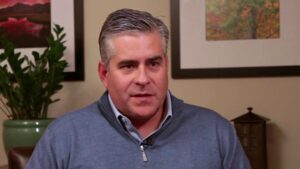In an attempt to control inflation, the Federal Reserve has signaled its intention to raise the federal funds rate (currently set at zero) three times in 2022. This will effectively raise interest rates in general, making it more expensive to borrow money.
Even small increases in the federal funds rate can have an impact on investor decisions. Here are three things to consider when investing in a rising-interest-rate environment:
Long-term debt will become less appealing
When interest rates rise, newly issued bonds offer better yields than existing bonds, causing existing bonds to drop in value. This effect is more pronounced in long-term bonds than in short-term bonds. Many bond investors will respond to rising interest rates by increasing their position in short-term bonds and reducing their position in long-term bonds while also seeking out floating-rate notes that pay more as rates rise and Treasury Inflation-Protected Securities (TIPS), the principal of which increases when inflation rises and decreases with deflation.
Before making changes to your bond portfolio, it’s important to understand the role that bonds play in your overall financial plan. For example, if you rely on a steady stream of income from bonds, or if you’re satisfied with your current mix of short-, medium-, and long-term bonds, you may decide to leave things as they are.
Savings instruments such as certificates of deposit (CDs) work similarly in a rising-rate environment. Because you lock in your interest rate at the time of deposit, short-term CDs tend to become more attractive, and long-term CDs tend to become less attractive.
Stocks may take a hit
Rising interest rates make it more expensive for both consumers and companies to borrow money. This can make it harder for a company to invest in its own growth, and it can reduce its customers’ disposable income, potentially reducing revenues. For these and other reasons, rising interest rates can hurt stock prices.
In practice, however, different stocks can respond to rising interest rates differently. Companies with large quantities of cash on hand may benefit from rising interest rates by earning more from their cash reserves. Companies with high debt-to-equity (D/E) ratios, on the other hand, may struggle to continue growing.
To make an informed decision about what to do with your stocks in a rising-rate environment, consider other economic factors and your personal goals. An interest-rate hike itself may be a sign of a fast-growing economy, and the stock market may continue to climb through rising interest rates. Even if the market does slow down, you may decide that keeping your stocks where they are is most compatible with your long-term goals.
Refinancing your debt will become more expensive
Impending interest-rate hikes are a good reason to examine your personal debt. Refinancing your mortgage or other long-term debt at a lower, fixed rate before a rate hike may help you keep the interest on your debt from outpacing the returns on your investments as rates rise.
Rising interest rates can affect the performance of your portfolio and even influence your investment decisions. But before you act, consider the details of your portfolio construction and overall financial plan to decide whether changes to your investment strategy are necessary. Remember that your financial plan was likely designed with your long-term goals in mind. It may already take the possibility of rising interest rates into account, so there may be little you have to do. If you are concerned, however, talk to your financial advisor, who can help you address the impact rising interest rates may have.
SOURCES:
https://www.cnbc.com/2021/03/12/some-moves-to-consider-during-a-period-of-rising-interest-rates.html



